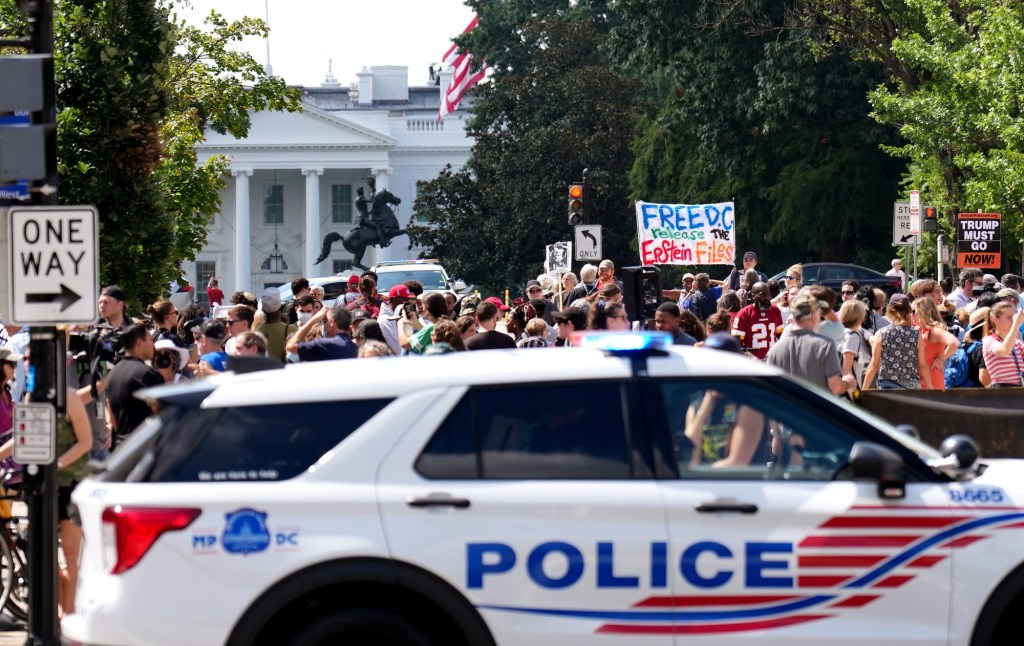
A decade ago, an encouraging bipartisan consensus was emerging for the need to reform public-safety policies in a way that improved crime-fighting and cost-efficiency and assured that policing better upheld Americans’ constitutional liberties. One core belief: militarizing police forces—a vestige of the failed War on Drugs — threatened those goals.
“The militarization of police, whereby their outward appearance and display of weapons, uniforms and equipment convey the image of a soldier at war rather than a keeper of the peace (and the accompanying preference for force over other options to solve problems) breaks the necessary bonds between the community and its police officers,” explained conservative reform group, Right on Crime.
Sadly, the Trump administration has obliterated that consensus as it has leaned into law and order — often in a performative manner. We first saw this with its deployment of ICE agents who arrived in unmarked cars, wore masks that concealed their entire faces, and failed to have any identifying information on their uniforms as they grabbed suspected illegal immigrants.
Then the administration deployed National Guard troops to Washington, D.C., streets to supposedly battle surging violent crime. Ensuing debates center on those D.C. crime rates. Crime in the national capital is too high, of course, but has fallen significantly since last year (and remains relatively low over the course of decades). There was no crisis to justify this thuggish approach.
This has turned the city into an occupied war zone, never mind the soaring price tag. Supporters say it has lowered crime, but any time a heavy-handed policy keeps people at home (COVID-19 stay-at-home orders, anyone?), crime will fall temporarily. Supporters also say Trump has a right to do this because D.C. is a federally controlled city. So why are they also applauding his threat to deploy troops in other cities?
This is not how a free society operates. There’s more localities can do to deal with serious crime problems, but we must rebuild the consensus that this must be done in a way that respects America’s historic commitment to federalism and individual rights.



